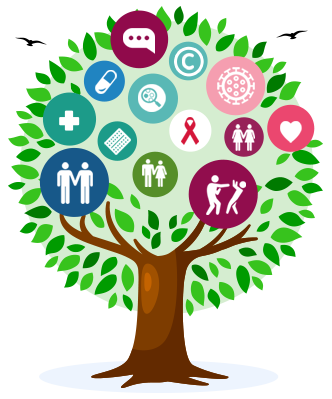
Latest News:
Services for Young People
Confidential information and advice on sexual health
Nearest service to meC-Card Issue Points
Where you can register or collect free condoms, including using our new Click and Collect
Find the nearest to meTop Hacks On Avoiding STIs
In general, sexually transmitted infections are preventable. We know the only guaranteed way to prevent STIs is to avoid any kind of sexual contact, however, for most people that isn’t possible or realistic
We know some people believe you only get an STI from vaginal or anal sex, however, some STI infections can be passed on through oral sex and through skin-to-skin contact.
There are some other things you can do to reduce the chances of catching an STI and still have an enjoyable sex life. These include:
- Always use a condom when you have sex where male partners or sex toys are involved
- Limiting the number of people you have sex with
- Talking honestly with sexual partners about each others sexual history, and if appropriate look to get tested together before having sex
- Avoiding sex when under the influence of alcohol or drugs. People who are drunk or using drugs often fail to have safe sex
- If you are a man who has sex with men, get vaccinated against hepatitis B (HBV). If you are under 46 years of age you can be vaccinated against the human papillomavirus (HPV)
Condoms are very good at preventing the exchange of infected bodily fluids through oral sex, vaginal or anal sex. They can also help to reduce the risk of getting an infection from skin-to-skin contact. However, they don’t prevent transmission entirely. STIs that spread through skin-to-skin contact include:
- Syphilis
- Herpes
- Genital warts
Avoid sharing towels or underwear, as you can catch scabies and pubic lice through doing this as well as bedding, clothing and skin-to-skin.
Avoid sexual contact if
- You think you or your partner(s) have an STI
- You or a partner has genital sores, a rash, discharge or other potential symptoms you or they think may be an STI
To prevent giving an STI to someone else if you suspect you may have one:
- Stop having sex until you see a doctor or have visited SWISH and are treated
- Follow your doctor or SWISH staff's instructions for treatment
- Don't resume having sex unless your doctor or SWISH staff have given you the all-clear, return to your doctor or SWISH to get rechecked if advised to do so
- Be sure your partner or partners are also treated
The only time unprotected sex is completely safe from the risk of STI infections is if you and your partner only have sex with each other, and you both remain exclusive to each other. Where you both have a sexual history, each of you should have tested negative for STIs, and this should be at least three months after you both last had a sexual partner(s)



















